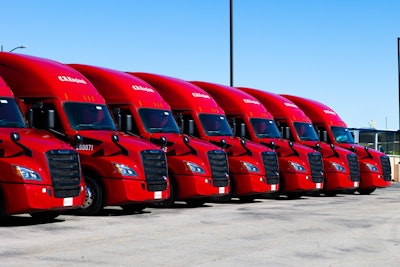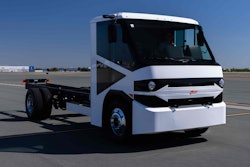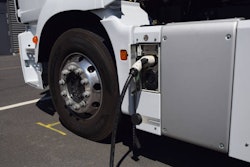
One of the nation’s largest refrigerated trucking carriers and intermodal logistics providers on Monday threw its support behind a proposed merger of Union Pacific Railroad and Norfolk Southern Corporation.
By uniting western and eastern rail networks, C.R. England (CCJ Top 250, No. 32) claims the merger creates a single transcontinental railroad offering uninterrupted, single-line haul service. For Intermodal providers like C.R. England, this means freight can move from the Southeast to the West without switching carriers — eliminating delays and improving reliability.
“As a fourth-generation trucking executive, I’ve seen our industry evolve from my great-grandfather’s Model T to today’s Intermodal networks. A seamless coast-to-coast rail carrier is something we’ve dreamed about for years," said C.R. England Chief Operating Officer Zach England.
Union Pacific Corporation and Norfolk Southern Corporation in July announced an agreement to create America’s first transcontinental railroad – an $85 billion deal that connects more than 50,000 route miles across 43 states from the East Coast to the West Coast, linking approximately 100 ports and nearly every corner of North America.
England noted rail is three to four times more fuel-efficient than trucking. For example, he said that one ton of cargo can travel roughly 480 miles per gallon of diesel by rail compared to 150 miles by truck, reducing fuel use and lowering costs for shippers.
"This merger lets us combine the best of rail and trucking: moving freight farther with less fuel and fewer emissions, then delivering the last mile by truck," he said.
Rail emits up to 75% less greenhouse gases than trucks. One intermodal train can replace about 500 trucks, England said, easing highway congestion and wear. Coast-to-coast shipments can also arrive one and two days sooner by staying on a single railroad. For time-sensitive goods like food and consumer products, England said this speed and consistency are game-changers, especially during truck capacity crunches.
"It means faster transit, greater capacity, and lower costs," he said. "For our customers, that translates to improved supply chain efficiency and savings we can pass on to consumers. It’s better for our business, our customers, and the country.”
Chuck Marias, president of rail transloading and logistics service provider the Transload Group, said his company has witnessed first-hand the power of combining truck and rail through its partnership with Norfolk Southern. "Our Chicago transload facility saw a 62% surge in volume after NS invested in it," he said.
Schneider (No. 6) in 2023 completed the transition of its western rail operations to Union Pacific as part of company’s plans to double the size of its intermodal business by 2030 and continue to reduce its carbon footprint.
J.B. Hunt Transport Services (No. 3), in June, along with BNSF Railway and GMXT, the largest rail provider in Mexico, have announced the launch of a new intermodal offering for Mexico businesses with service-sensitive freight delivery. In 2024, J.B. Hunt, BNSF and GMXT launched intermodal service to and from Mexico through the Eagle Pass Gateway.










